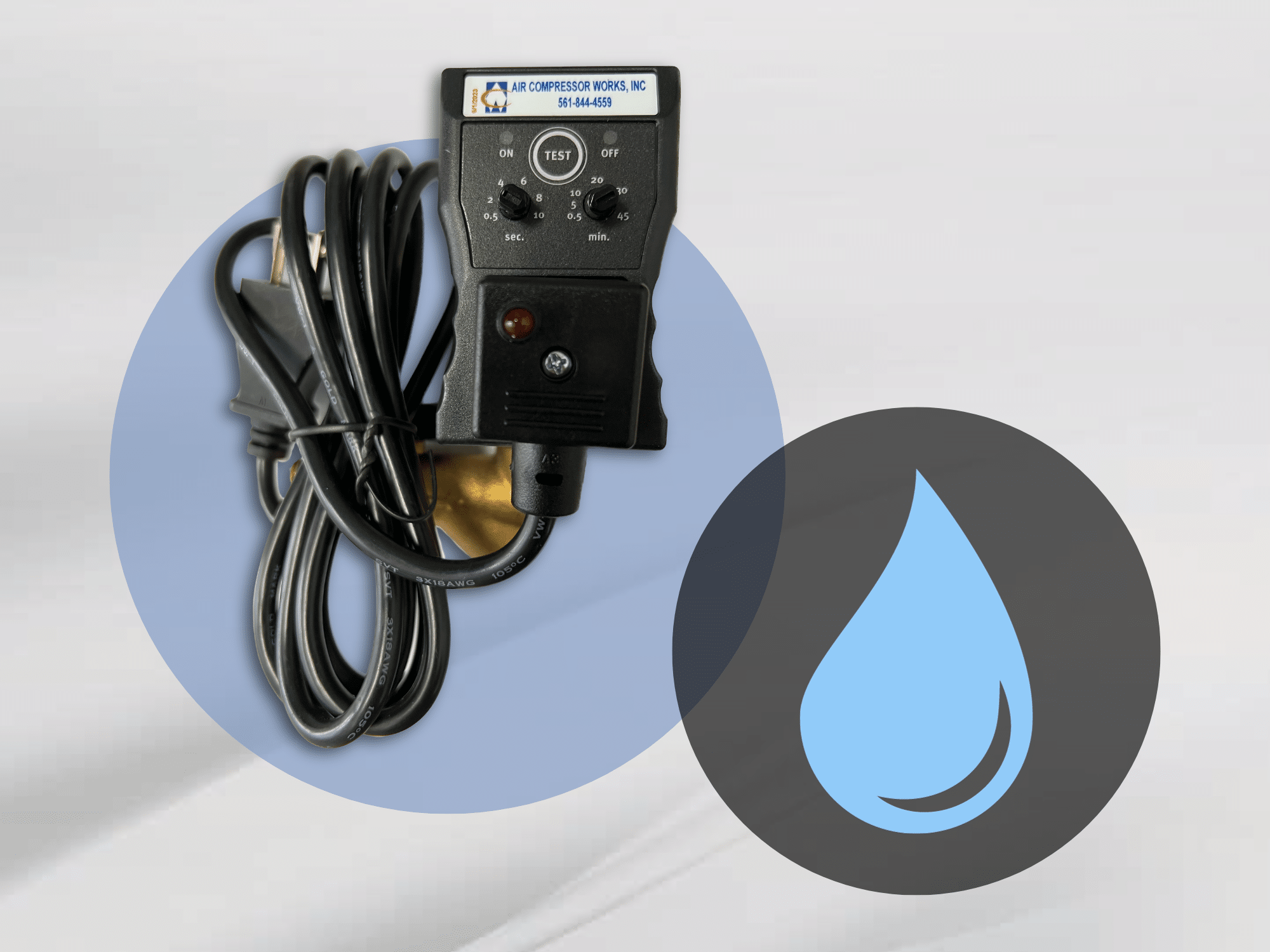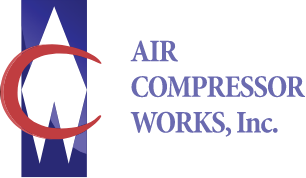Air Compressor Works
Post
The Crucial Role of Drains in Humid Environments
September 14, 2023

Drains might not be the headliners in the compressed air system show, but they’re the unsung heroes that keep things going smoothly. In humid environments, their role becomes even more important, defending against the most intense moisture. Next time you see a drain, remember that it’s not just a tiny pipe – it’s your ticket to a high-performance, corrosion-free, and efficient compressed air setup. With the right drains on your side, you’re not just managing moisture – you’re ensuring your business’s success, rain or shine!
Understanding Compressed Air Systems
Before we dive into the significance of drains, let’s establish a foundational understanding of compressed air systems. Compressed air is created by compressors, which force regular (“atmospheric”) air into a smaller volume, resulting in higher pressure. The air is then stored in tanks or distributed through a network of pipes to various points of use.
The Role of Moisture in Compressed Air Systems
Air, even in its seemingly dry state, contains moisture in the form of water vapor. As air is compressed, its temperature rises, allowing it to hold more water vapor. However, when the compressed air cools down – for instance, as it travels through pipes – its capacity to hold moisture decreases.
This leads to the condensation of water vapor, resulting in the accumulation of water droplets within the compressed air.
Excessive moisture within a compressed air system can lead to a host of issues:
- Corrosion – Moisture can cause rust and corrosion within pipes, tanks, and equipment, potentially compromising their structural integrity and reducing their lifespan.
- Equipment Malfunction – Water droplets can enter tools and machinery, causing mechanical failures, reduced efficiency, and downtime for repairs.
- Contaminant Transport – Moisture can transport dirt, debris, and other contaminants present in the air, leading to clogged filters and decreased air quality.
- Reduced Efficiency – Water vapor can mix with lubricants, diminishing their effectiveness and causing increased friction within machinery.
- Freezing – In cold environments, accumulated moisture can freeze and obstruct air pathways, disrupting the entire system.
The Vital Role of Drains
This is why drains are so important. Drains are mechanisms incorporated into compressed air systems to remove accumulated moisture and condensate. They serve as an essential line of defense against the adverse effects of humidity within these systems. Drains work by automatically or manually expelling the collected water from the system, thus safeguarding the system’s efficiency, longevity, and performance. For most systems, it’s important to install a drain to expect the best from your air compressor.
Types of Drains
Several types of drains are utilized in compressed air systems, each tailored to specific applications and environments:
- Manual Drains – These basic drains require manual intervention to release condensate. While cost-effective, they depend on regular human attention, which can be prone to oversight or inconsistency.
- Float-operated Drains – These drains employ a float mechanism to detect the water level within the system. When the water reaches a certain level, the float triggers the drain to open and release the condensate.
- Timed Drains – Operating on a preset time interval, these drains open at regular intervals to discharge condensate. However, they might lead to unnecessary wastage if the condensate level is low.
- Electronic Level-sensing Drains – These advanced drains use sensors to monitor the water level accurately. When the condensate reaches a predetermined level, the drain is activated, ensuring efficient condensate removal without excessive wastage.
- Zero-loss Drains – These drains aim to minimize compressed air loss while effectively removing condensate. They employ a combination of electronic level sensors and solenoid valves to precisely control condensate discharge, reducing energy costs associated with air loss.
Significance in Humid Environments
In humid environments, the importance of drains becomes even more pronounced. High humidity levels mean that compressed air systems will encounter a greater amount of moisture-laden air. This increased moisture content significantly raises the risk of condensate formation within the system. If not effectively managed, this excess moisture can lead to rapid deterioration of equipment and diminished operational efficiency.
In industries where air quality standards are stringent, such as pharmaceuticals and food processing, proper moisture control is crucial to maintain product integrity and prevent contamination. Inadequate condensate management could lead to compromised products, costly recalls, and damaged reputations.
Best Practices for Drain Maintenance
To ensure the optimal performance of drains and compressed air systems, several best practices should be observed:
- Regular Inspection – Periodic visual checks of drains and associated components can identify issues early, preventing potential failures.
- Scheduled Maintenance – Establish a maintenance program that includes cleaning, testing, and possible replacements of drain components. Quality service is important to ensure that we keep you up and running!
- Correct Drain Selection – Choose drains that are appropriate for the specific application and environment. In humid conditions, opt for drains with robust moisture-detection capabilities.
- Air Filtration – Employ proper air filtration systems to remove contaminants before they enter the system, reducing the risk of clogs and blockages in drains.
- Education and Training – Ensure that personnel are well-trained to recognize signs of drain malfunction and understand the importance of proper condensate management.
Compressed air systems play an integral role in powering various tools, machinery, equipment, and manufacturing processes, and can range from personal systems to high-power commercial and industrial compressors. Considering their importance, make sure not to skip out on drains so that you can make sure your system is operating at full efficiency!
For all questions on drains and all air system solutions, feel free to give us a call at (800) 345-4364 or send us an email.
Contact Us
Contact Us
Palm beach:
1956 W 9th St
Riviera Beach, FL 33404
Monday – Friday 7:30 AM - 4:30 PM
Map and Directions
Miami:
7292 NW 25th St
Doral, FL 33122
Monday – Friday 7:30 AM - 4:30 PM
Map and Directions
Phone Number:
Areas We Serve
- Miami
- Fort Lauderdale
- Hollywood
- Boca Raton
- Stuart
- Vero Beach
- Delray Beach
- West Palm Beach
- Homestead
- Key West
- Fort Pierce





